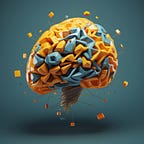Personalized Medicine: How AI is Revolutionizing Healthcare
Tailoring Treatment to the Individual for Better Health Outcomes Through the Power of Artificial Intelligence
The world of healthcare is undergoing a remarkable transformation, thanks to the advancements in artificial intelligence (AI). Personalized medicine, a practice that tailors medical treatment to the individual characteristics of each patient, is at the forefront of this revolution. This approach moves away from the one-size-fits-all strategy, focusing instead on optimizing treatments based on the patient’s genetic makeup, lifestyle, and environment. This article explores how AI is changing healthcare, making treatments more effective and improving patients’ lives.
What is Personalized Medicine?
Personalized medicine is an approach to healthcare that uses information about a person’s genes, proteins, and environment to prevent, diagnose, and treat disease. In the past, doctors had to rely on standard treatments that were the same for everyone. But with personalized medicine, treatments can be specifically designed to fit the unique characteristics of each patient.
The Role of AI in Personalized Medicine
AI technologies, including machine learning and data analytics, are key to the development of personalized medicine. They can analyze vast amounts of data from genetic tests, medical records, and even wearable devices to identify patterns and predict which treatments will work best for individual patients. Here’s how AI is revolutionizing healthcare:
- Predicting Disease Risk: AI can analyze genetic information and lifestyle data to predict an individual’s risk of developing certain diseases. This allows for early intervention and preventive measures.
- Customizing Treatments: AI algorithms can help doctors choose the most effective treatment based on the patient’s genetic profile. For example, in cancer treatment, AI can predict which chemotherapy drugs will be most effective for a particular tumor type.
- Monitoring and Adjusting Treatments: Wearable devices equipped with AI can monitor patients in real time, allowing doctors to adjust treatments as needed. This is especially useful for chronic conditions like diabetes, where treatment needs can change over time.
- Drug Development: AI speeds up the process of drug discovery by predicting how different drugs will interact with various genetic mutations. This not only speeds up the development of new medicines but also helps create drugs tailored to specific genetic profiles.
Challenges and Opportunities
While personalized medicine and AI offer many benefits, there are also challenges to overcome. These include protecting patient privacy, managing the vast amounts of data generated, and ensuring that these advanced treatments are available to everyone, not just those who can afford them. Despite these challenges, the potential of AI in personalized medicine to improve healthcare outcomes is immense.
In the Final Analysis
Artificial intelligence is revolutionizing healthcare, making it possible to tailor treatments to the individual for better health outcomes. By harnessing the power of AI, personalized medicine can offer more effective treatments, predict disease risk, and improve the quality of life for patients. In the final analysis, the integration of AI into healthcare through personalized medicine represents a significant leap forward, promising a future where treatments are not only more effective but also more attuned to the unique needs of each patient.
Want the latest articles delivered straight to your inbox? Subscribe now and never miss out!
